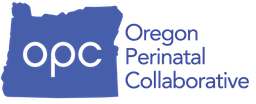
Preeclampsia Foundation Cuff Kit Program
The Preeclampsia Foundation offers a comprehensive resource known as the Cuff Kit™. This kit includes a certified automatic blood pressure device, a blood pressure tracker and educational materials in a variety of formats. The kit also provides tools to educate about the signs, symptoms and postpartum risks associated with preeclampsia.
In order to qualify to participate in this work, providers must be able to:
- Quickly and readily communicate with participating patients, utilizing telehealth as needed.
- Prioritize distribution to highest risk, especially vulnerable women with lower ability to procure their own BP cuff (i.e., individual risk factors include chronic hypertension, history of preeclampsia, obesity, age [35+], autoimmune disorders; as well as population-level risk factors such as black, Native American or rural women).
Commit to provide quarterly feedback to help assess the impact of this initiative. Please see the questions here, so you can implement systems to collect this data.
New 2022 Birth Data

The Health Affairs journal recently published their key takeaways from the recently released National Center for Health Statistics data on maternal and infant mortality for 2022.
This dataset is the first to reveal the impact of the initial three waves of COVID-19 in the United States. These data suggest persistent disparities in maternal and infant outcomes, despite significant changes in birthing practices and demographics.
This article discusses policy-related questions that have emerged including racial/ethnic disparities in birth outcomes, trends in induction rates and overall birth rates, and the rise of out-of-hospital births.
Webinar: Missed Opportunities for Preventing Congenital Syphilis
According to the Centers for Disease Control and Prevention (CDC), cases of congenital syphilis in the United States increased 15% from 2019 to 2020, and by 32% from 2020 to 2021. This precipitous rise is a public health issue that needs urgent attention and action at the state level. Preventing congenital syphilis requires early screening, diagnosis and treatment to prevent potential lifelong consequences for affected families and communities.
The Bureau of Primary Health Care and the CDC’s National Center for HIV, Viral Hepatitis, STD, and TB Prevention will collaborate on a webinar developed for clinicians and other health care providers. This webinar will provide an overview of congenital syphilis and explore missed opportunities for preventing congenital syphilis as well as interventions for prevention.
Substance Use Disorder in Prenatal and Perinatal Care
The Oregon ECHO Network is hosting a series of virtual sessions about substance use disorder identification and treatment for prenatal and perinatal people, with a special focus on opioid use disorder and illicit non-pharmaceutical fentanyl. These sessions will cover a variety of subtopics and qualify for continuing medical education credits (CMEs).
Schedule: 12 sessions Tuesdays, April 2–June 18, 2024 | 12–1 p.m. (PT)
Packages to Support AIM Bundle Implementation

These sessions run January through April 2024 on the second Wednesday of each month. The next, and last, session is April 10, 2024, 11 a.m.–12 p.m. (PT). Recordings of previous sessions can be found here.
Severe Hypertension in Pregnancy Patient Safety Bundle

Interested in learning more about the next OPC initiative? For more information on the Alliance for Innovation on Maternal Health’s Patient Safety Bundle on Severe Hypertension in Pregnancy, follow this link for a list of resources.
OPC Hospital Outreach Initiative
The Oregon Perinatal Collaborative will be visiting all 47 birthing hospitals in Oregon in 2024 to build relationships and to ensure that our quality improvement initiatives are responsive to the needs of Oregon hospitals and communities. We’ll be reaching out to schedule a listening session with maternal and newborn staff leaders at each hospital to learn about the challenges hospitals face in providing care and how the OPC could support each hospital in quality improvement. We’re looking forward to these meetings! Have a contact at your hospital OPC should reach out to? Please contact akersons@ohsu.edu.

Our work is supported by cooperative agreement NU58DP006358, funded by the Centers for Disease Control and Prevention as well as funding from the Oregon Chapter of the March of Dimes. Additional in-kind donations have been made through Comagine Health, Oregon Health & Science University, and our generous volunteers.



